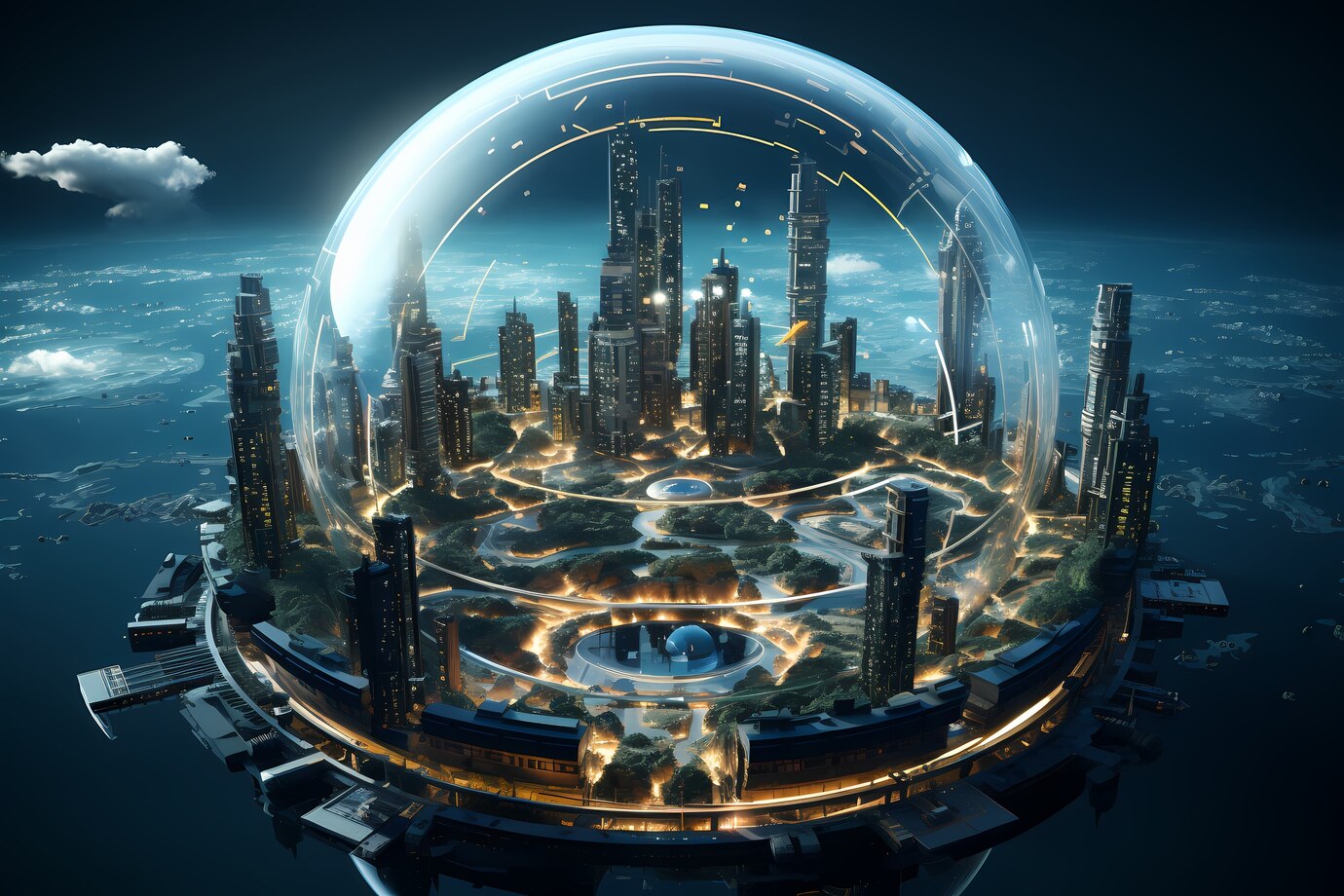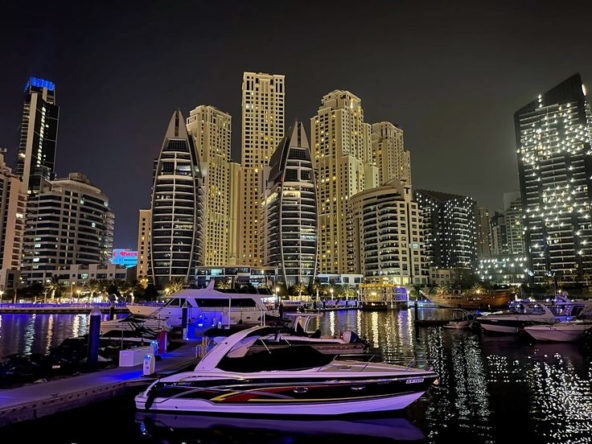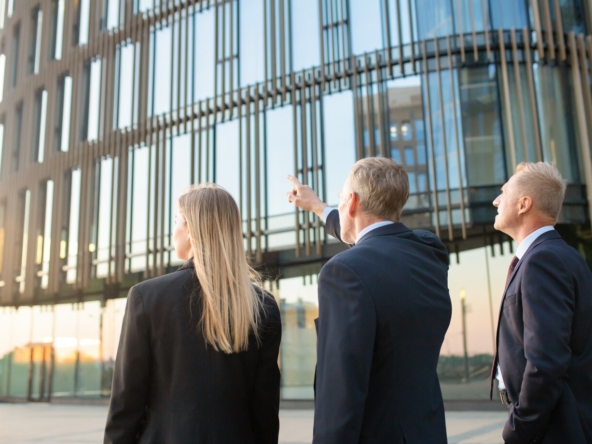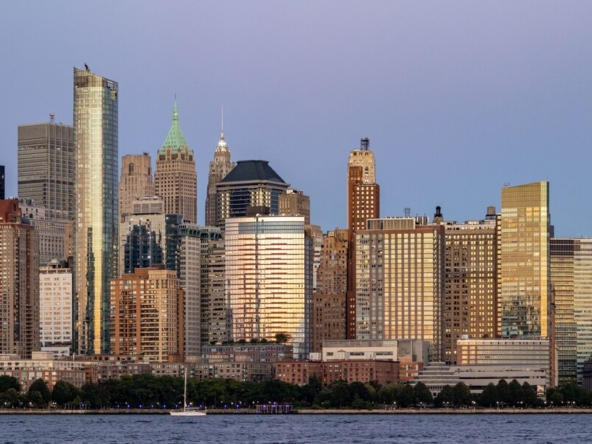Dubai is 10 years away from a full transformation into smart properties
Dubai is one of the most advanced and innovative cities in the world, constantly striving to adopt the latest technologies to become a fully smart city. With the emirate’s vision for 2030, Dubai is heading towards a comprehensive transformation in the real estate sector, where smart properties will become an integral part of everyday life. This shift relies on integrating technology into every aspect of property design and management, opening new horizons for both investors and residents alike.
In this article, we will cover everything you need to know about smart properties in Dubai, from their definition and features to their impact on Dubai’s real estate market, along with answering frequently asked questions investors might have.
What Are Smart Properties?
Smart properties are real estate assets that leverage modern technology to make life more comfortable, secure, and sustainable. This is achieved by integrating technologies such as Artificial Intelligence (AI), the Internet of Things (IoT), automation, and renewable energy into the design and management of homes and buildings.
Features of Smart Properties:
- Efficient Energy Management:
Smart properties in Dubai use energy management systems that reduce electricity and water consumption. - Smart Security Systems:
These include internet-connected surveillance cameras, smart locks, and alarm systems. - Remote Control:
Residents can control lighting, air conditioning, and home appliances via smartphones or voice commands. - Automation:
Systems automatically adjust based on surrounding conditions, such as modifying lighting based on natural light. - System Integration:
All devices and systems are interconnected to provide a seamless living experience.
Why Are Smart Properties a Priority in Dubai?
1. Part of Dubai Smart Vision 2030
Dubai launched the “Smart Dubai” initiative to become one of the smartest cities in the world by 2030. This includes transitioning to smart properties as a core component of the city’s infrastructure.
- Objective: Improve the quality of life for residents, reduce the carbon footprint, and increase resource efficiency.
- Outcome: A cutting-edge real estate infrastructure competing globally with cities like Singapore and Tokyo.
2. Enhancing Environmental Sustainability
Like other major cities, Dubai faces environmental challenges related to energy and water consumption. Smart properties provide sustainable solutions through:
- Solar energy technologies.
- Water recycling systems.
- Sensors that minimize resource waste.
3. Attracting International Investors
With the shift towards smart properties, Dubai becomes a preferred destination for investors seeking innovative and sustainable projects. Smart properties are an attractive investment due to their high future value.
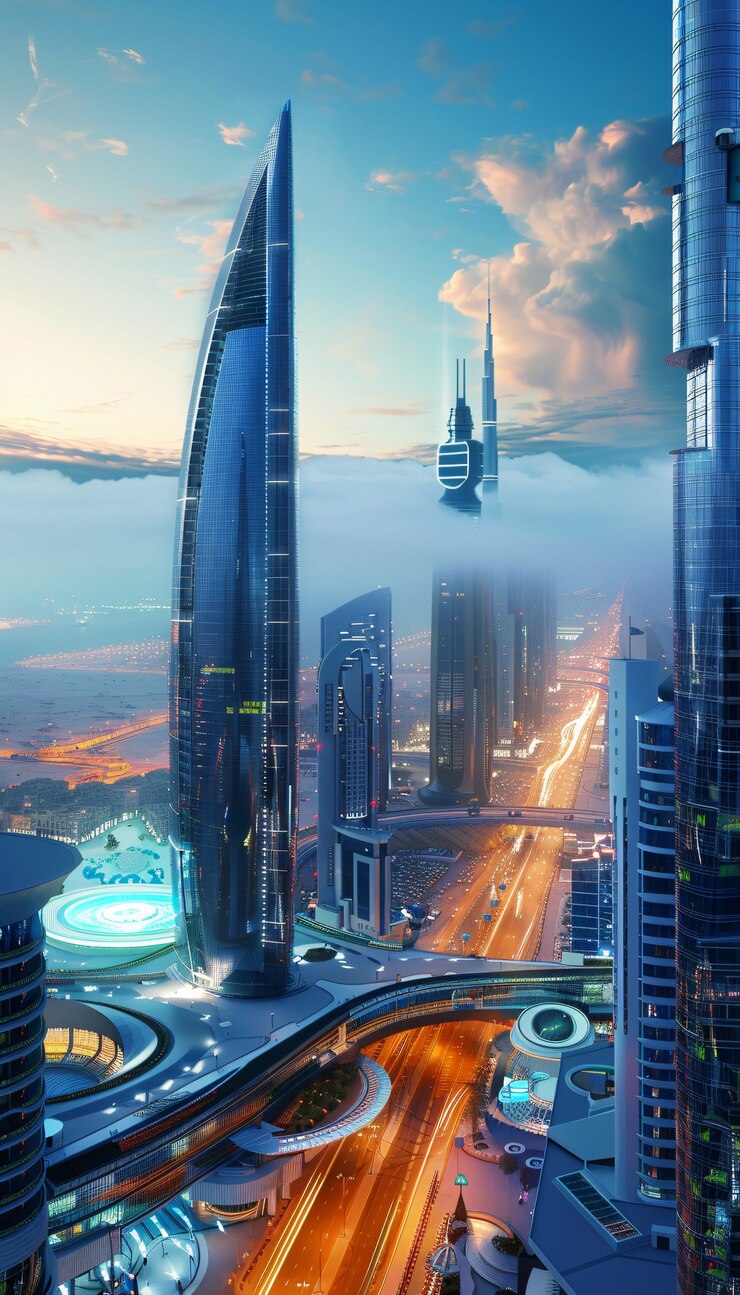
How Does the Shift to Smart Properties Impact Dubai’s Real Estate Market?
1. Increased Demand for Smart Properties
As residents become more aware of the importance of modern technology, the demand for smart properties is on the rise. Buyers are looking for homes that provide comfort, security, and cost savings.
2. Rise in Smart Property Prices
Smart properties are considered a long-term investment, with their value expected to increase over time. In the future, traditional properties may become less appealing compared to smart homes.
3. Changes in Real Estate Project Design
Property developers in Dubai are now focusing on designing projects that fully incorporate smart technologies. This transformation will radically change the shape of Dubai’s real estate market in the coming years.
Key Smart Property Technologies in Dubai
1. Internet of Things (IoT)
IoT connects all home devices to a single network, enabling remote control.
Example: Turning on air conditioning or switching off lights using a smartphone app.
2. Artificial Intelligence (AI)
AI is used to analyze residents’ behavior and provide personalized solutions.
Example: Heating and cooling systems that automatically adapt to residents’ needs.
3. Renewable Energy
Technologies such as solar panels are integrated into smart home designs to reduce energy consumption.
Example: Residential communities fully powered by solar energy.
4. Automation
Smart systems operate automatically based on surrounding conditions.
Example: Windows that close automatically when external temperatures rise.
Examples of Smart Property Projects in Dubai
1. Dubai Smart City
An ambitious project aimed at transforming Dubai into a city fully reliant on smart technology.
- Features smart buildings powered by sustainable energy and advanced communication systems.
2. District 2020
Developed as part of Expo 2020, this project focuses on creating smart and sustainable communities.
- Includes infrastructure supporting smart technologies like IoT and AI.
3. Boulevard Complex in Downtown Dubai
Features residential units fully equipped with smart technologies, such as remote control systems and smart lighting.
Challenges Facing Smart Properties in Dubai
1. High Technology Costs
Despite their numerous advantages, smart properties are often more expensive than traditional ones.
2. Need for Advanced Infrastructure
A complete shift to smart properties requires the development of a strong communication network and technical support systems.
3. Residents’ Awareness of Technology
Some residents may find it difficult to adapt to smart technologies, necessitating efforts to train and educate them.
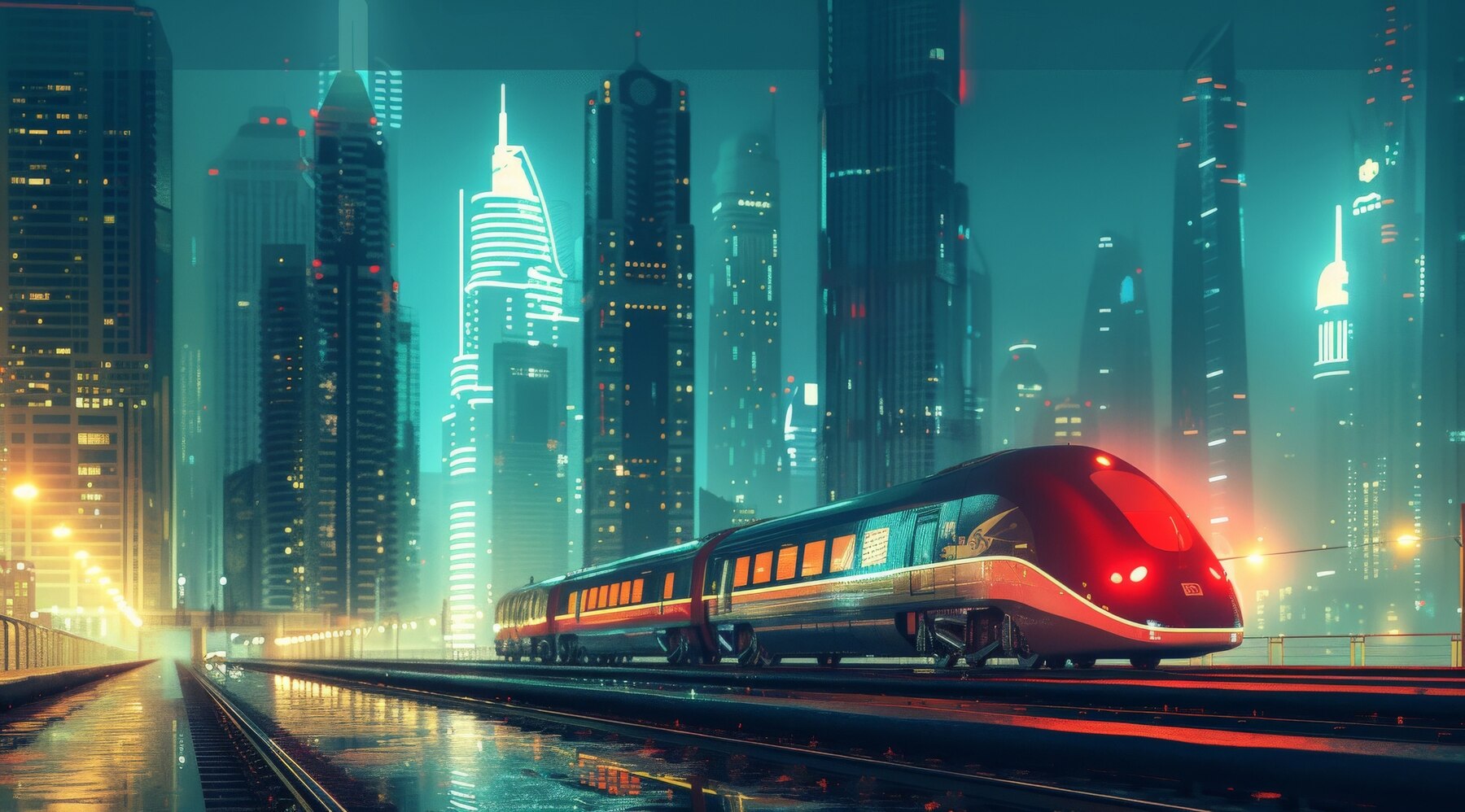
Frequently Asked Questions About Smart Properties in Dubai
With the increasing interest in smart properties in Dubai, discussions about their benefits, technologies, and challenges are on the rise. Below is an extensive list of frequently asked questions that investors and residents may have about this type of property:
1. What are smart properties?
Smart properties are homes and buildings that utilize advanced technologies such as Artificial Intelligence (AI), the Internet of Things (IoT), and sustainable energy to provide comfort, security, and efficiency in resource consumption.
2. What is the difference between smart properties and traditional properties?
- Smart properties: Rely on technology to offer an advanced living experience, including remote control of home devices, enhanced security systems, and energy efficiency.
- Traditional properties: Lack these technologies and depend on manual systems.
3. What are the benefits of smart properties in Dubai?
- Improved quality of life through comfort and flexibility.
- Reduced energy and water consumption, lowering living costs.
- Increased security with advanced safety systems.
- Higher property value in the real estate market.
4. Are smart properties a good investment option?
Yes, smart properties are a promising investment. Their demand is growing with global digital transformation, which means their market value is steadily increasing.
5. What are the top areas in Dubai with smart properties?
Leading areas for smart properties include:
- Downtown Dubai
- Dubai Marina
- Mohammed Bin Rashid City
- City Walk
- District 2020
6. How can I verify if a property is smart?
You can confirm by checking for:
- Smart control systems for lighting, air conditioning, and electrical appliances.
- Advanced security features like internet-connected cameras and smart locks.
- Energy-saving technologies such as solar panels and advanced insulation systems.
7. Are smart properties more expensive than traditional properties?
Yes, smart properties are typically more expensive due to their advanced technologies. However, they offer long-term savings by reducing energy and water consumption.
8. Do smart properties require special maintenance?
Yes, smart devices require regular maintenance to ensure optimal performance.
This includes software updates, device checks, and ensuring network connectivity.
9. Can traditional properties be converted into smart properties?
Yes, traditional properties can be upgraded by adding smart control systems, connected devices, and modern security systems. However, the cost may vary depending on the level of upgrades required.
10. Are smart properties in Dubai environmentally friendly?
Yes, smart properties rely on sustainable technologies such as solar energy and water recycling systems, making them more environmentally friendly than traditional properties.
11. What are the most common systems in smart properties?
- Smart lighting systems.
- Smart air conditioning systems.
- Advanced security systems (smart locks, surveillance cameras).
- Energy control devices.
- Voice assistants like Alexa and Google Home.
12. What are the investment returns on smart properties compared to traditional properties?
Smart properties offer higher investment returns due to their growing demand. They are a profitable long-term option thanks to reduced operating costs and increased market value.
13. Are smart technologies safe from hacking?
Since smart properties rely on the internet, they may be vulnerable to hacking.
To ensure safety:
- Use secure internet networks.
- Regularly update systems.
- Use strong passwords.
14. Are there government initiatives supporting smart properties in Dubai?
Yes, Dubai has several initiatives like “Smart Dubai” and “Dubai Clean Energy Strategy 2050”, which support the shift towards smart and sustainable properties.
15. How can I finance the purchase of a smart property in Dubai?
Banks and financial institutions in Dubai offer special mortgage programs for smart properties. Developers also provide flexible payment plans.
16. Are smart properties suitable for families?
Yes, smart properties offer a safe and comfortable environment for families, with features like:
- Advanced security systems to protect children.
- Climate control for a comfortable atmosphere.
- Smart home appliances to simplify daily life.
17. How do smart properties reduce living costs?
- Lower electricity and water consumption through energy-efficient systems.
- Solar energy for power generation.
- Smart technologies to prevent waste, such as sensors that shut off unused systems.
18. Are smart properties in Dubai suitable for businesses?
Yes, smart properties are not limited to residential use—they are also ideal for offices and businesses. They offer:
- Energy management systems to reduce operational costs.
- Flexible and connected work environments.
- Advanced security systems to protect data and assets.
19. What is the future of smart properties in Dubai?
Smart properties are expected to dominate Dubai’s real estate market in the next decade. All new projects will be fully equipped with smart technologies, aligning with Dubai’s 2030 vision.
20. Can smart properties be controlled remotely?
Yes, smart properties can be controlled remotely using smartphone apps or voice assistants.
21. Are there any concerns about using smart properties?
Concerns may include privacy and digital security risks due to internet connectivity.
These concerns can be mitigated by using reliable systems and securing data effectively.
22. What are smart contracts, and how are they used in smart properties?
Smart contracts are digital contracts based on blockchain technology that automatically and securely record real estate transactions. They ensure transparency and reduce transaction costs.
23. Are smart properties suitable for renters?
Yes, many smart properties in Dubai are available for rent, allowing tenants to benefit from advanced technologies without purchasing the property.
24. How does the government support the shift to smart properties?
- Providing advanced infrastructure like high-speed internet.
- Launching initiatives to encourage developers to adopt smart technologies.
- Offering incentives for eco-friendly projects.
Smart properties in Dubai are a core part of the emirate’s vision to transform into a smart and sustainable city. With the adoption of the latest technologies, Dubai’s real estate market is expected to become even more attractive to investors and residents alike.
If you’re considering investing in Dubai, smart properties present an ideal opportunity for long-term returns, especially with the significant transformation expected in the next decade. Dubai is not just a tourist and commercial hub but is now on the verge of becoming the global capital of smart properties.
Contact us now via: https://wa.me/+971522222773

